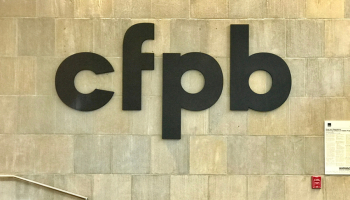CFPB Introduces Rules for Buy Now, Pay Later Lenders
Consumers have been granted the right to dispute buy now, pay later lenders
- |
- Written by Banking Exchange staff

The Consumer Financial Protection Bureau (CFPB) has issued an imperative rule upon buy now, pay later lenders, classing them as credit card providers.
Following the rule, buy now, pay later, lenders must now abide by the key legal protections and rights that conventional credit cards offer.
The right to dispute charges and demand a refund after returning or canceling a product purchased through a lender is now an option for consumers.
The CFPB’s rule was introduced with the aim of alleviating the common complaints related to refunds and disputed transactions and grant consumers a greater level of control of these services.
Rohit Chopra, director of CFPB, said: “When consumers check out and choose Buy Now, Pay Later, they don’t know if they will get a refund if they return their product or whether the lender will help them if they didn’t get what was promised,”
“Regardless of whether a shopper swipes a credit card or uses Buy Now, Pay Later, they are entitled to important consumer protections under longstanding laws and regulations already on the books.”
In addition to refund disputes, lenders must now provide billing statements, in line with the periodic billing statements provided by classic credit cards.
The CFPB has also set out the requirements for dispute investigations, ensuring that repayments are put on pause during the investigation, and in some cases must issue credits.
Since 2021, the buy now, pay later market has seen a drastic increase in size, which has promoted further investigation from the CFPB.
These types of lenders were found to be a close substitute for credit cards, often placed next to the classic credit card option at the time of online purchase.
CFPB’s research found that more than 13% of Buy Now, Pay Later transactions involved a return or dispute, forming the foundations of these imperative rules.
Tagged under Consumer Credit, Compliance, Customers, Cards, CFPB, Compliance/Regulatory, Consumer Compliance, Feature, Feature3,
Related items
- Chicago AI Week Spotlights Inspiring Women Leaders in Artificial Intelligence
- Deutsche Bank Acquires Aircraft Loans from NordLB
- EU Delays Key Part of Basel Reforms
- The Compliance Conundrum: Is Cybersecurity Hindering Credit Union Progress?
- Trade Groups Urge CFPB to Consider Small Firms in Proposed Rule











